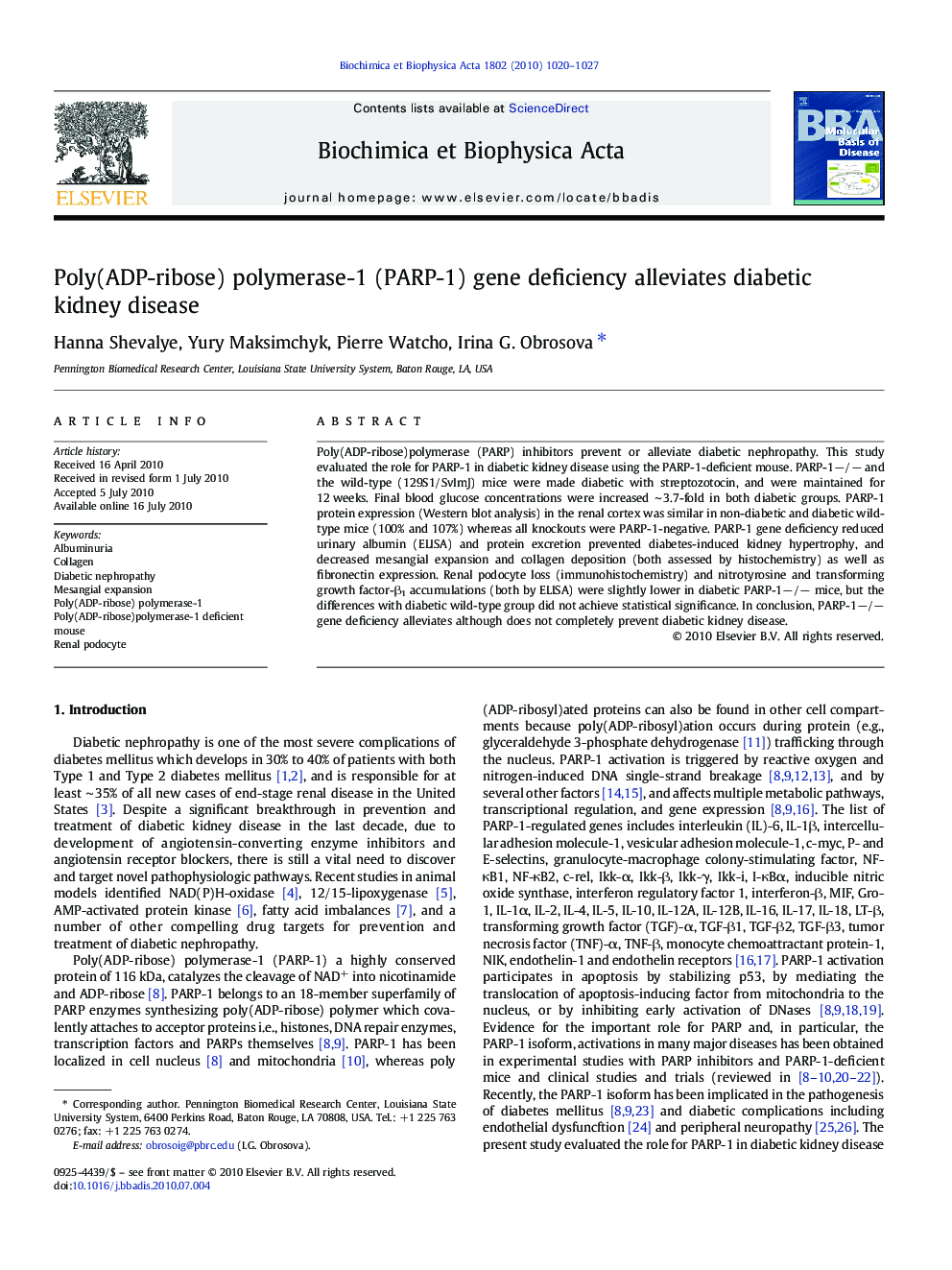| Article ID | Journal | Published Year | Pages | File Type |
|---|---|---|---|---|
| 1905320 | Biochimica et Biophysica Acta (BBA) - Molecular Basis of Disease | 2010 | 8 Pages |
Poly(ADP-ribose)polymerase (PARP) inhibitors prevent or alleviate diabetic nephropathy. This study evaluated the role for PARP-1 in diabetic kidney disease using the PARP-1-deficient mouse. PARP-1−/− and the wild-type (129S1/SvImJ) mice were made diabetic with streptozotocin, and were maintained for 12 weeks. Final blood glucose concentrations were increased ∼ 3.7-fold in both diabetic groups. PARP-1 protein expression (Western blot analysis) in the renal cortex was similar in non-diabetic and diabetic wild-type mice (100% and 107%) whereas all knockouts were PARP-1-negative. PARP-1 gene deficiency reduced urinary albumin (ELISA) and protein excretion prevented diabetes-induced kidney hypertrophy, and decreased mesangial expansion and collagen deposition (both assessed by histochemistry) as well as fibronectin expression. Renal podocyte loss (immunohistochemistry) and nitrotyrosine and transforming growth factor-β1 accumulations (both by ELISA) were slightly lower in diabetic PARP-1−/− mice, but the differences with diabetic wild-type group did not achieve statistical significance. In conclusion, PARP-1−/− gene deficiency alleviates although does not completely prevent diabetic kidney disease.
Research Highlights► PARP-1 activation is responsible for kidney hypertrophy and contributes to albuminuria, proteinuria, renal mesangial expansion, fibronectin overexpression, and collagen deposition in Type 1 diabetic kidney disease. ► The nephroprotective effect of PARP-1 gene deficiency was less pronouced than that of non-selective PARP inhibitors in previous studies which suggests that the PARP isoform other than PARP-1 are also involved in the pathogenesis of diabetic nephropathy. ► The findings provide rationale for development and further studies of PARP inhibitors and PARP inhibitor-containing combination therapies, for prevention and treatment of diabetic kidney disease.
